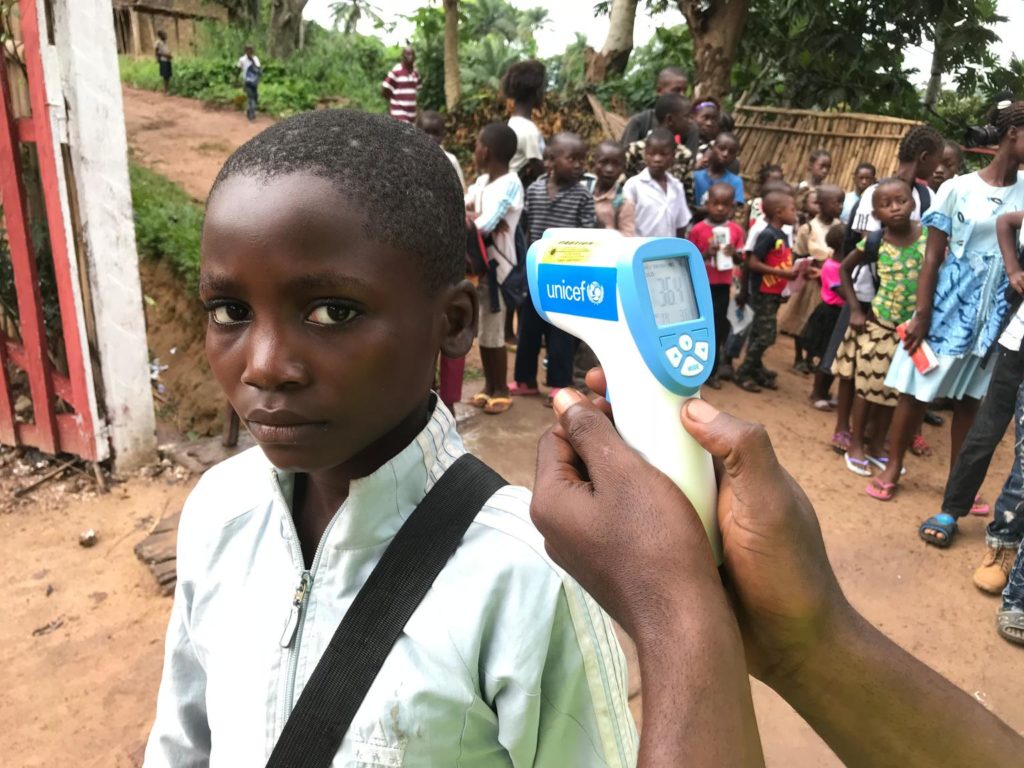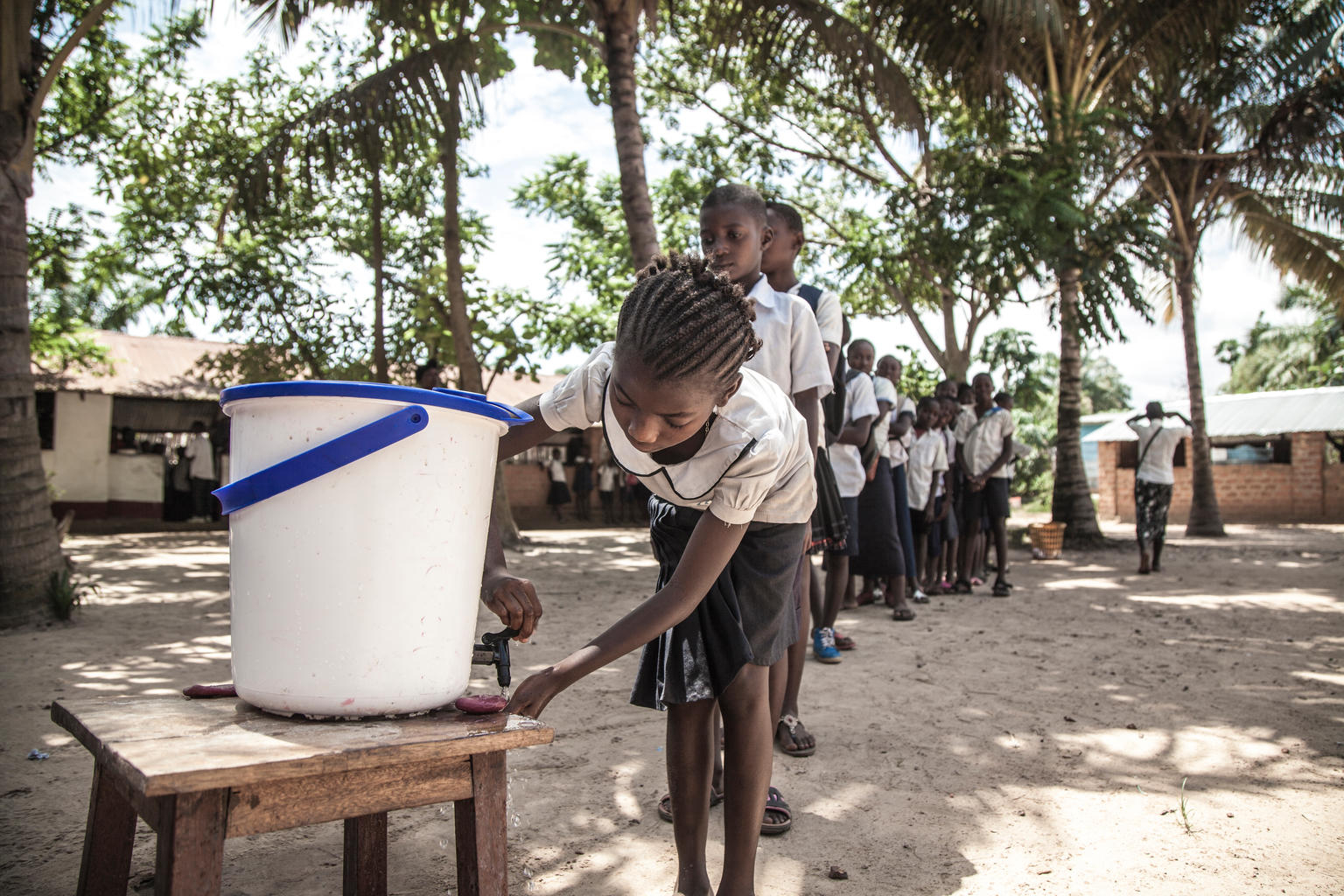Fast and effective in the fight against Ebola
2018-07-04
© UN0211678/Naftalin
On 22 May 2018, children wash their hands to help contain the Ebola outeak before entering a classroom in the north-western city of Mbandaka, in the Democratic Republic of the Congo. UNICEF has installed hand-washing points in 50 targeted schools in affected areas in the port city.
As I write this, I am inside the Iboko Health Zone, south of the Équateur Province in the Democratic Republic of Congo (DRC). Almost two months ago, the Health Minister declared an Ebola epidemic in the country. Iboko is one of the three health zones affected.
The past weeks have been particularly stressful and demanding for all of us in the UNICEF DRC team. During one of the first coordination meetings, the UNICEF Representative had clearly set the pace for us — we are at war with the disease. To contain the disease, we knew we had to be quick and efficient.
Speed and efficiency
A few hours after the epidemic was declared, I left my workplace in Kinshasa and got onto a United Nations flight to the city of Mbandaka, the capital of the Équateur Province. Getting to the UNICEF office here allowed us to quickly implement our response to this new crisis.
"We are at war with the disease"
Mbandaka is about 100 kilometers north of the Bikoro Health Zone, where the first cases of Ebola were discovered. My stay in Mbandaka was short as we had to get to Bikoro as soon as possible. Three days after the announcement of the epidemic, I was in Bikoro, with my colleagues Dr. Agnes, Modestine, Vincent and Jean-Pierre. Our mission was both simple and complex: to contain the risk of propagation, we were to quickly locate every Ebola case and the people who might have come in contact with them.
Chasing a disease
As the disease spreads to Mbandaka and towards the Iboko Health Zone (East of Bikoro), we need to expand our response to these newly affected areas. We must chase the disease as it develops. Bikoro will not be my last stop.

© UN0216104/Shadid
On 30 May 2018 in the Democratic Republic of the Congo, students attending primary School “Vie Nouvelle” in Wangata neighbourhood must wash their hands and then have their temperature screened with a UNICEF-provided infrared thermometer before entering the school, in order to reduce the risk of Ebola Virus Disease (EVD) transmission in Mbandaka, the capital of Equateur Province. Since the start of the EVD outeak in the country, UNICEF and its partners have reached more than 300,000 people with lifesaving information about how to avoid contracting the deadline virus.
After a good week’s work in the Bikoro, I travel to Iboko to lead our first team there. I find myself in increasingly difficult places. But that does not scare me. If the disease spreads here, we will be here to stop it.
For the past weeks, the chase for Ebola has defined my days: following up on the evolution of the disease and on cases and their contacts, organizing communication and awareness campaigns on protection methods, distributing handwashing devices in public places, and providing psychological assistance to affected families. As of now, we are following more than 150 contacts in the health zone of Iboko — truly painstaking work.It is impossible for me today to predict how this epidemic will develop, but one thing is certain: we have all the resources on our side to quickly win this war.










